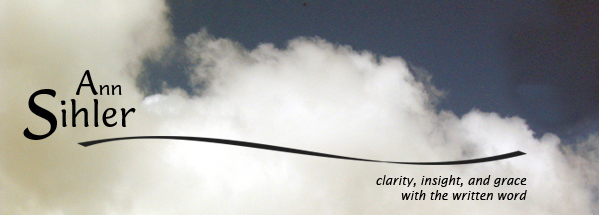|
On the Passing of Small Things My husband had been talking about taking down the birdhouses for a while. He was fed up with the English sparrows that nested in them--how the sparrows moved right in before other species had a chance, how they snatched honeybees from his beehives and ate the new leaves off his pea plants, how they squabbled and mobbed the bird feeder so much that the chickadees and goldfinches kept their distance. I had agreed that removing the birdhouses was probably for the best, but I wasn't prepared when he came into the kitchen one evening when I was chopping onions and peppers. "Look what was in the birdhouse I removed," he said, showing me his cupped palm. In it lay four small, softly speckled gray eggs the size of my fingernail. They huddled together in his hand as if taking refuge from this world of Formica and steel and fluorescent lights. Seeing them that way, feeling their vulnerability, my heart quivered and wanted to take refuge, too. "Are they still warm?" I asked. He nodded and tipped them gently into my hand. Weightless, they glowed softly against my skin, like his own touch under the covers at night. Instantly I felt protective toward them, knew in a way I hadn't before that they were alive--and that they were dying. Even if we wanted to, it was too late to change our minds. "I had to dig around in the nest to get them," he said, wiggling his fingers to demonstrate. "They were way down. It was full of garbage, really, but so soft. Those birds know what they're doing." "Amazing," I said, lifting my hand slightly. "This. Little birds." "If they'd already hatched, I wouldn't have done it. But eggs..." We both looked down at them. "I guess I'll throw them in the compost pile." I couldn't stand the thought of them, still warm and alive in their little shells, being tossed away like garbage. "Put them in the living room," I suggested, "in that nest you found last year." So he did. The four eggs barely fit in the tiny grass nest knitted together with fir needles and thistle down. Soft and fluffy, it was studded with dark-brown thistle seeds still attached to the down that had carried each seed on the wind, in a directionless, do-or-die flight to fertile ground or anywhere but, to a future or oblivion. The eggs looked like they belonged in that nest. They seemed to rest and cuddle, their speckles camouflaging them against the twined grasses and seeds. But when I touched them just a short time later, they were cool as stone. I caught my breath. How could they have so silently, secretly, gone? 
Content © Ann Sihler |
• • • • • • • • • • • • • • • • • • • • • • • • • • • • • • • • • • • • • • • |
Services Need help? Work samples Testimonials Creative
503.282.6311 |

